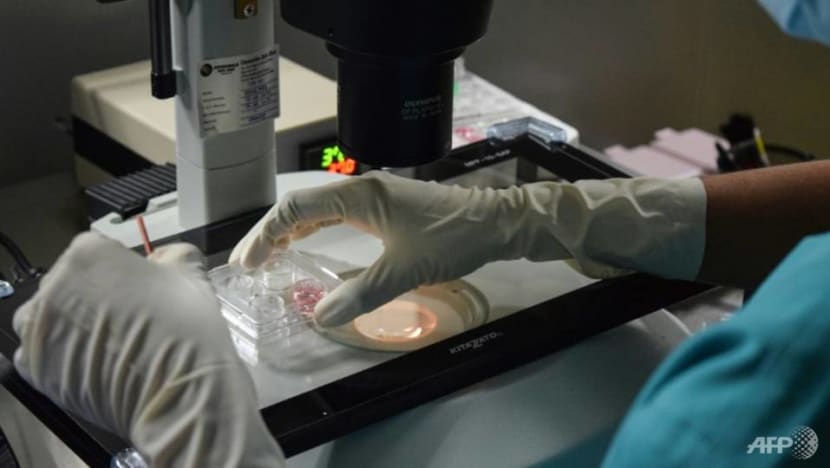White Paper on Women’s Development: Women can undergo elective egg freezing regardless of marital status

Freezing eggs can give women a chance to have children later. (Photo: AFP/Sam Reeves)
SINGAPORE: Women aged 21 to 35 in Singapore could soon choose to freeze their eggs regardless of their marital status.
In the White Paper on Singapore Women’s Development released on Monday (Mar 28), the Government proposed that the move will be made with “sufficient safeguards” to ensure that the women make an informed choice.
Only legally married couples will be able to use the frozen eggs for procreation, said Minister of State for the Ministry of Social and Family Development Sun Xueling.
Currently, egg freezing in Singapore is only permitted for medical reasons. This includes, for example, conditions where the treatment is known to affect fertility, or conditions where the risk of ovarian cancer requires the removal of ovaries and fallopian tubes.
“The Government supports and encourages Singaporeans to pursue their marriage and parenthood aspirations as early as possible,” she added.
“But we recognise through the conversations that there are women who worry that they are not able to find a suitable partner when they are young, but they wish to have the chance to conceive and to start a family when they marry later.”
After considering various options, the Government proposes to let women have the choice to undergo elective egg freezing, said Ms Sun.
“But before the procedure takes place, there will be pre-procedure counselling. This is to enable and ensure that the women make an informed choice,” said the Minister of State.
“The invasive nature of the procedure, the low chances of having live births, the risks associated with late parenthood as well as the costs from the operation as well as the storage of the frozen eggs will be highlighted to them.”
Elective egg freezing will be implemented with the introduction of the Assisted Reproduction Services Regulations under the Healthcare Services Act in early 2023.
When asked whether women will be allowed to use their frozen eggs overseas with a sperm donor, an MSF spokesperson said: “Singapore’s public policy encourages parenthood within marriage.
“While women can transfer their frozen eggs to an overseas assisted reproduction centre, MSF does not support planned and deliberate parenthood by singles as a lifestyle choice. Specifically, we do not support the use of ART (assisted reproductive technology) for the purpose of forming single unwed parent households.”
This is why safeguards are in place and only legally married couples will be able to apply to use their eggs for procreation, the spokesperson added.
On the reasons behind the age limit for elective egg freezing, the spokesperson noted that this aligns with the age limits for egg donation determined by international scientific evidence and “professional consensus” that egg quality declines significantly after age 35, said the MSF spokesperson.
“Hence, having the age limit at 35 years of age avoids giving false hope that any frozen egg can be successfully used for procreation and safeguards women against AR (assisted reproduction) providers promoting the retrieval of frozen eggs after this age limit.”
Women who miss the local criteria slightly and wish to appeal can ask their practitioners to appeal on their behalf, the spokesperson added.


















